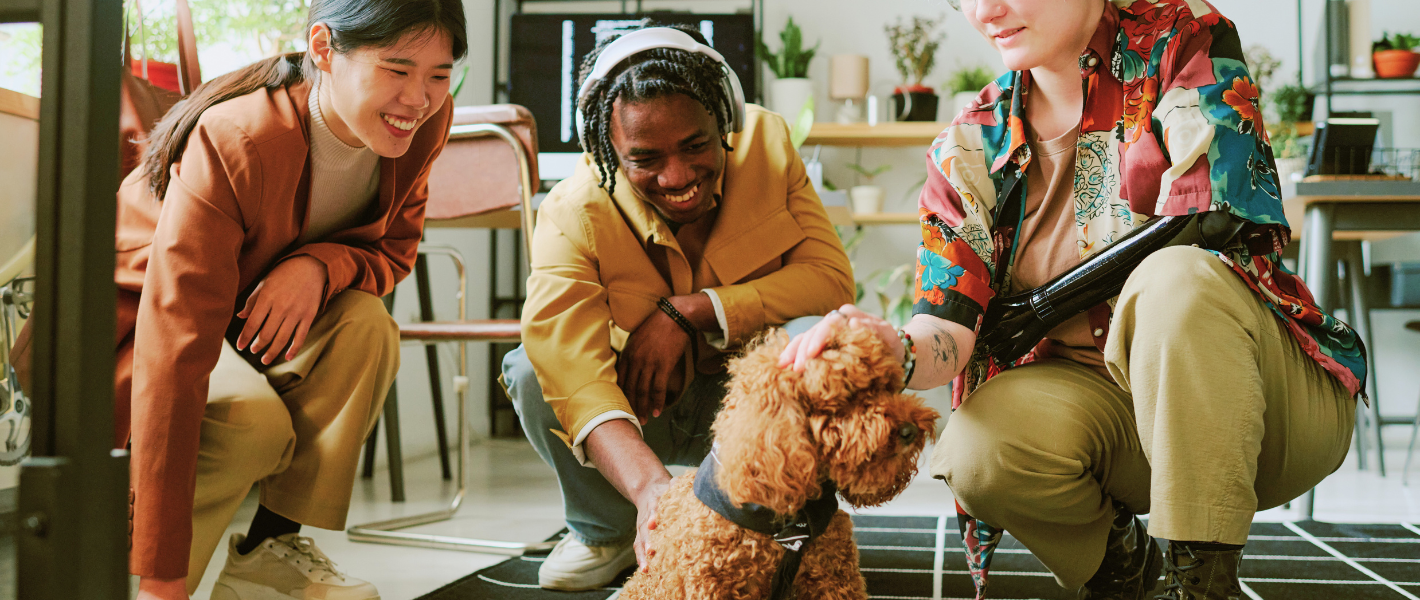Navigating Challenging Times
I think we can all agree that the past few years have tested the resilience of us New Zealanders. From COVID-19 disruptions to inflation, restructures, and global uncertainty, both employers and employees have been under loads of pressure.
From my perspective as an IT recruiter in Wellington, at times it’s felt like running a marathon in the desert – you keep going, but the finish line seems like a mirage you never reach. The IT job market has been one of the toughest in decades, with employers juggling tighter budgets, heavier workloads, and change fatigue, while job seekers face constant rejections and limited opportunities.
I get calls from candidates all the time (including people at senior leadership level) saying they’ve lost jobs, had to move back home or sell their house, or even look overseas for work. It can be heartbreaking, and while I’m not a trained counsellor, part of my role has become simply listening and checking in.
That’s why the theme of this year’s Mental Health Awareness Week, ‘Top Up Together’, feels so relevant, because I don’t think resilience is something we build on our own. I reckon it comes from connection, support, and the ways we help each other through tough times. Which brings me to the question: what does it mean to be resilient?
What is resilience?
Resilience doesn’t look the same for everyone. I think it’s subjective, but it basically comes down to how we react in difficult situations, as well as our ability to overcome challenging circumstances.
For me personally, resilience isn’t about pushing through and pretending everything’s fine. I’ve battled with anxiety most of my life – which I didn’t even realise was anxiety until much later, when mental health was more widely spoken about.
I started noticing it during Uni, when I was exercising less and partying more (definitely going a bit too hard!), but back then the blokes I knew didn’t really talk about their own mental health for fear of being judged. So even though I knew my lifestyle was part of the reason my mental health was declining, I didn’t want to admit it because I knew I was failing myself and my own high expectations, so I just battled it internally.
Over the years I’ve learned that for me, consistent routines, exercise and wellness techniques like running, cycling, meditation, breath work, laying on a shakti mat or even plunging into the ocean on a cold day, help to give me balance. Without those outlets, I can feel my resilience tank running empty pretty quickly.
When my 19-month-old son was diagnosed with leukaemia on the first day of the COVID lockdown, resilience took on a whole new meaning. Our life literally stopped in its tracks, but the world outside kept spinning. Once I got out enough tears to fill a swimming pool and worked through the feeling of “why us?”, I just kept looking forward and getting the little guy through it.
It was easily the toughest period of my life – constant stress, sleepless nights, the pain of watching him suffer, and the intense fear of losing him. I found myself needing to dig deeper down to find the resilience to keep myself going, and my daily runs around Hagley Park were truly a life saver.
Thankfully George made it out the other side, and so did we. What really got my wife and I through was the love and support from family, friends, colleagues, and even strangers, and we’ll be forever grateful.
The experience changed me, and taught me to let my guard down, be vulnerable in front of people, shed a tear, accept offers of help, and share what I was going through. It also taught me that resilience isn’t just about what I can do myself – it’s also about leaning on others.
Supporting Each Other at Work
This year’s Mental Health Awareness Week theme, ‘Top Up Together’, is a great reminder that we can’t build resilience alone. As part of this, the Mental Health Foundation have provided a handy framework called ‘Five Ways to Wellbeing’, which are evidence-backed practices to help build resilience and improve your wellbeing. Here’s how I think we can apply these to our work (and daily) lives:
Connect
Create opportunities for genuine conversations, whether that’s regular team check-ins, coffee catch-ups, or even just asking a workmate how they’re doing. I think this is especially important for employers and managers whose companies are going through a lot of change because it helps you keep your finger on the pulse and make sure your team aren’t burnt out.
Give
One thing we can often give is our time – whether you’re a leader taking the time to listen to your team, or a team member taking the time to lend a hand to a workmate. Or if you know someone who’s job hunting and struggling (it’s really hard out there!), you could help them review their CV or reach out to your own networks to see if anyone knows of any opportunities. It’s those small acts of generosity – whatever they may look like – that help build trust and community.
Be Active
It sounds so simple, but make sure you move during the day. This is a huge one for me because I find it makes the biggest difference to my mental health. Take a proper break and go for a lunchtime run, walk, or cycle to work, or even try walking meetings. And if you’re a manager, make sure your team have the capacity to do this, especially because a lot of tech roles require you to sit in front of screens all day.
Take Notice
When I’m feeling anxious, I often overlook the positives, so I’d suggest focusing on small wins, celebrating achievements, and acknowledging contributions. But it’s also important to notice when things might not be going so well. I’m lucky enough to have had Mental Health First Responder training, an opportunity I got through Absolute IT’s parent company, Accordant Group. This training gave me tools to spot when someone might be struggling and to guide them toward the right support. Sometimes, even just asking a simple “are you okay?” can make a big difference. I’d encourage organisations to explore this training for their team – it was delivered by a great company called CoLiberate.
Keep Learning
For candidates, this could look like taking free online courses, earning certifications, or attending webinars in emerging tech areas. Not only does this strengthen your CV, but it also builds confidence and a sense of progress, which is super important when job hunting feels tough. For employers, this could mean offering clear development pathways, creating mentorship programmes, or giving staff time each week to experiment with new tools. Growth fuels resilience and helps people feel valued.
Moving Forward
The IT industry in New Zealand is full of talented people, but right now many are feeling stretched thin. Employers can’t underestimate the value of supporting staff wellbeing, and job seekers shouldn’t underestimate the importance of looking after themselves during tough times.
For me, resilience is built on exercise, routine, gratitude, and the support of others. This Mental Health Awareness Week, let’s make an effort to ‘top up together’, so that none of us have to carry the load on our own.








